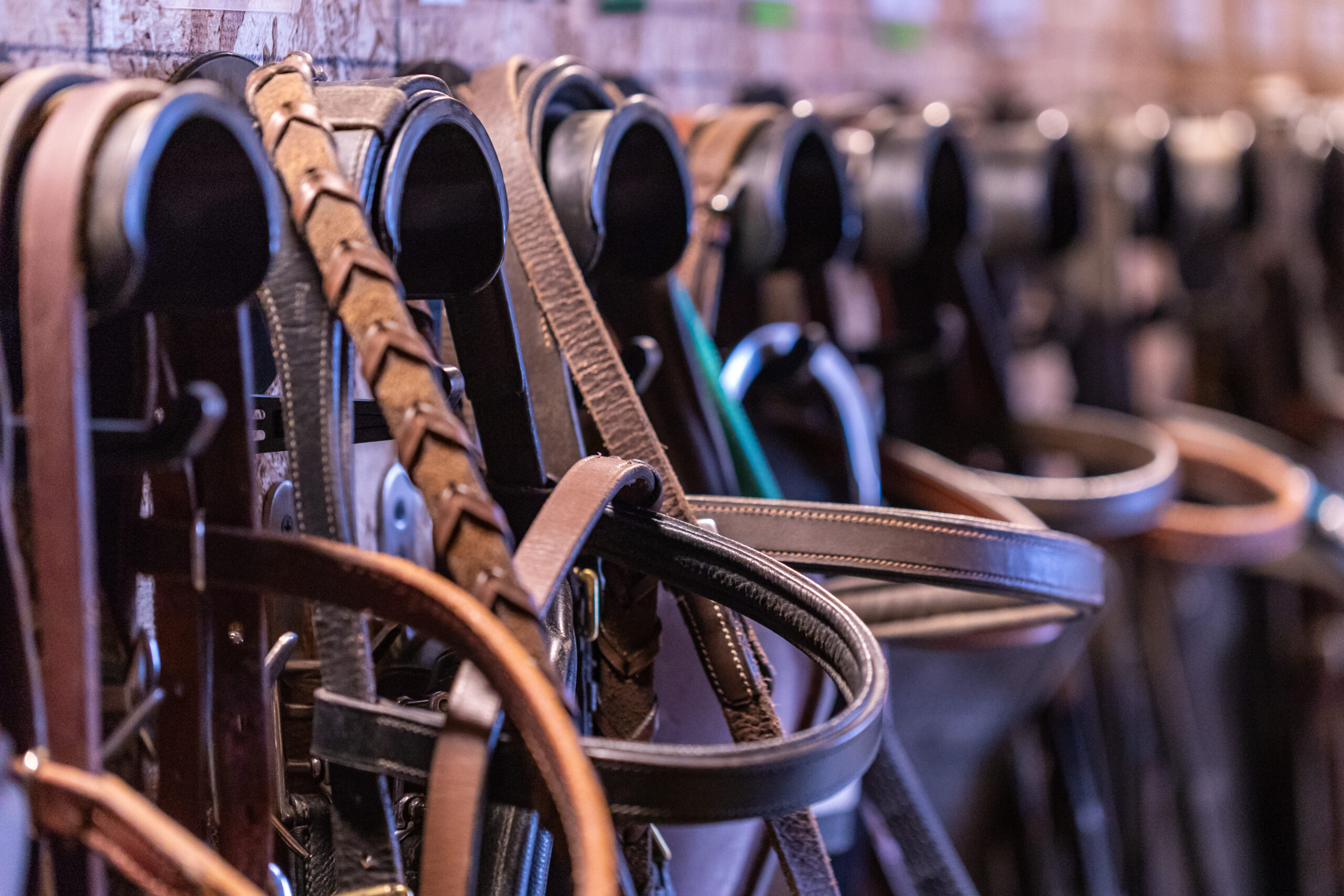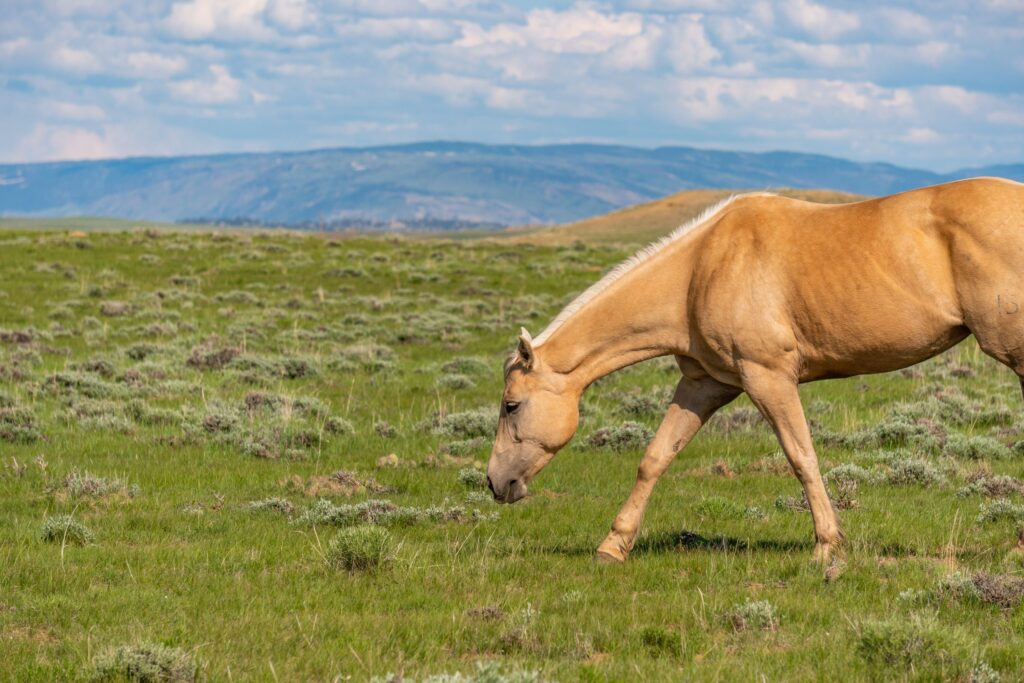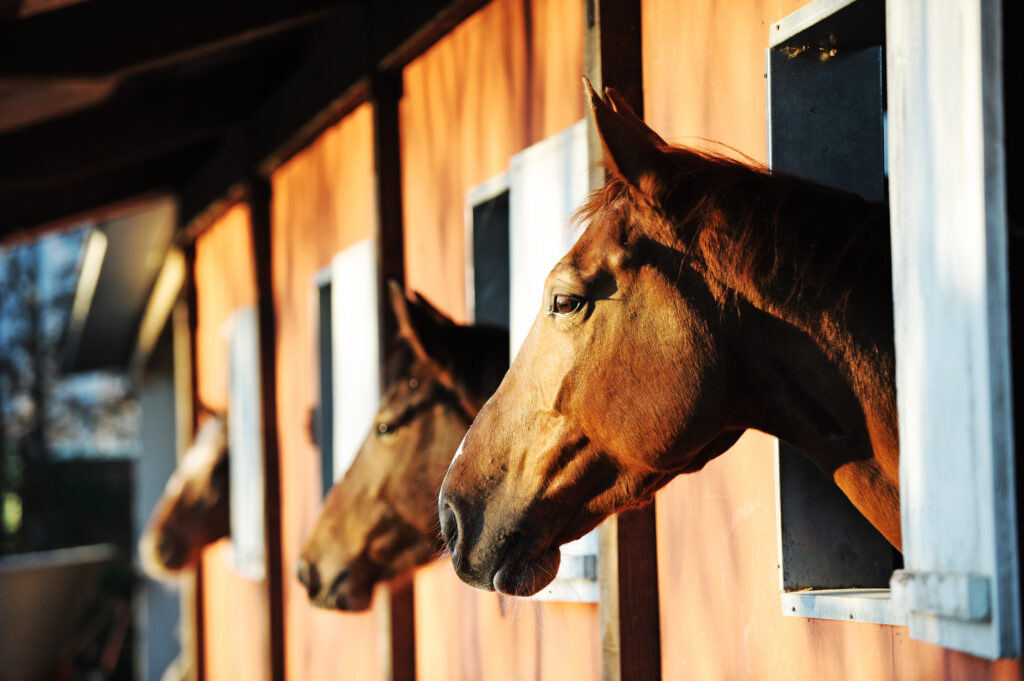



Sign in
Sign in to save favorite properties and equipment, save your search parameters and more
Don’t have an account yet? Sign Up Now
Sign up
Already have an account? Login Now






Sign in
Sign in to save favorite properties and equipment, save your search parameters and more
Don’t have an account yet? Sign Up Now
Sign up
Already have an account? Login Now
Some come to know the land or the farm or the ranch by way of being raised on one. It’s the same story for most of the agents at Hayden Outdoors, including Casey Stayman and Tracy Heckert. Both became lifelong experts on equine properties by trotting, galloping, or wandering their way through life on horseback. Today, they’re two of Hayden Outdoors’ leading specialists on buying and selling horse property, with extensive experience with what to know before buying equine property.
Tracy and Casey are no strangers to the benefits of owning horse property; they don’t hesitate to talk about how horses have shaped their lives, and the power of being in such close contact with the impressive animals.
Casey was born and raised in Colorado. Her early days were spent picking up riding the old fashioned way. “We’d buy horses for $50 to $200, and learn to ride on a trial basis. If you fell off, you got back on.” The grit and tenacity served her well, and she embarked on a proper equine education at 15 when one of her neighbors was training reining horses and took her under his wing. Later, after her son was born, horses helped her find her way through a severe case of postpartum depression. Fall off, get back on.
Today, she lives with her family in Wyoming, but still manages the Hokey Pokey Ranch Company in Livermore, Colorado. She rides mostly Western, working with roping horses and her new cutting horse and is actively involved with her local 4 H program. She’s been a real estate agent for over 15 years, and has proudly been with Hayden for eight of those, representing farm, ranch, and horse properties in Wyoming and Colorado.
Tracy’s mom was an assistant to a trainer at a successful Arabian horse farm in Southern California. She was on horseback not long after she learned to walk and enrolled in 4-H when she was nine years old. She attributes most of her equine education to the organization, became a 4-H leader at one point and then briefly bred paint horses before moving to Colorado in 2004.
After settling in the Centennial State, Tracy founded a non-profit sanctuary for kids and horses – the Charis Youth Ranch. She partners rescued horses with at-risk youth, giving the horses a second chance and the kids an opportunity to build confidence and self esteem. She’s now based out of Fort Collins, Colorado, and rides mostly English, but, “I like an old Western saddle every once in a while.” Tracy has specialized in brokering farm, ranch, and equine property in Colorado since 2004.
While they’re horse lovers at heart, both agents are quick to point out the benefits must be weighed against a variety of other factors when you’re considering buying land that can accommodate horses. They walked through the important things to look for before you do.
Before you invest in real estate with the intention of putting horses on it, it’s important to take a close look at what you hope to accomplish. Casey often asks these questions to potential clients to get a sense of what they need:
Tracy continues, “You have to cover the bases from two perspectives – what the horse will need, and what the client wants.”

Both agents outline the minimal requirements for a horse to live on a piece of land:
From there, the conditions get more specific to each client’s – and each horse’s – needs. Says Tracy, “I really try to educate my clients on the different types of fencing. If you buy some beautiful acreage, but it’s peppered with old barbed wire, you’re going to need to pull it out and definitely put in a new fence.”


Property size is an obvious but very important consideration. The agents have seen a trend in people wanting to downsize their equine property while still maintaining some of the key aspects of a larger horse property. For these buyers, Tracy and Casey look at equine-specific developments with shared facilities and infrastructure. If you want to purchase a large parcel of land for your horses, you might need to consider the cost of hiring a live-in caretaker to help with maintenance.
Pay attention to topography, grasses, and soil type. Horses need plenty of grass but typically don’t fare well on rocky soil. Talk with your agent about the rain cycles and how those cycles might affect the grass and hay seasons. Make sure your horses will have sufficient access to a water source, or consider installing one.
And if your goal is to ride, consider whether there are already trails on the property or access to nearby trail systems and riding areas.
Horse properties in the United States can require additional knowledge of the land and a particular attention to detail on your agent’s part, so it’s important to ensure you’re working with someone who has a deep understanding of horses and land.
Some important questions to ask your recreational real estate agent when looking for land for your horses are:
Tracy, Casey and other Hayden Outdoors agents offer an innate understanding of horse properties for sale in the West, or how best to prepare yours if you’re looking to sell. They know what to look for, what to avoid, and how to work with local and regional agencies to ensure you and your horses will be happy.
Another important reason to find the right recreational real estate agent when buying horse property? Financing it. A seasoned agent can help you navigate and understand your financing options and considerations, including:


Your horse property is home to you, and it’s home to your horses, so it’s particularly important to maintain the land and do a thorough property inspection before purchasing. A good horse property agent will walk the land with you, looking for key traits like out buildings, round pens, stables, and water, as well as potential pitfalls like poisonous plants, gopher holes or prairie dog towns, and old fencing.
Once you own the land, it’s imperative to maintain it and to understand the costs of doing so. Casey emphasizes sourcing your horse’s hay. “It’s essential to keep hay local to avoid getting the horses sick.” Beyond that, you’ll need to maintain all outbuildings and fencing.
Take an inventory of your pasture to learn about the species of grass, where it’s growing, water sources, and fencing.
Establish an area where horses can graze while the rest of the pasture recovers during wet or winter months.
Learn more about your county’s grazing requirement per animal per acre.
Rotate grazing to give sections a chance to regenerate.
Once animals have moved on from a grazing zone, mowing down the grasses in that area can help promote more productive and more nutritional new growth.
Test your soil and apply the appropriate fertilizer at the appropriate time.
Put together a master plan for your pastures to help avoid overgrazing.
Owning horses and horse property requires extensive consideration. Some additional things to think about before purchasing horse property include:
Riding out from your own stable onto trails that wind through your land can be incredibly rewarding. Watching the sun sink beyond the red rims of Colorado’s canyons on horseback, taking the family on a trail ride up into the hills of Wyoming, or trailering your stock to the nearby show jumping competition – it really doesn’t get any better. Understanding what to look for when buying a horse property makes owning one all the better. The Hayden Outdoors agents that specialize in equestrian properties know these benefits as well as anyone, and they’re here to help you find your ideal equine property and understand the future of horse property ownership and management.
Casey wraps up by noting, “There are so many facets based on where people are on their journey with their horse.” Tracy adds, “But we come by our work naturally by way of being horse people ourselves.” Indeed, people who own horses, or want to, are Tracy’s and Casey’s people, and just like finding the perfect horse, they’re experienced in finding horse people the ideal horse property.
View our team of horse property agents today!